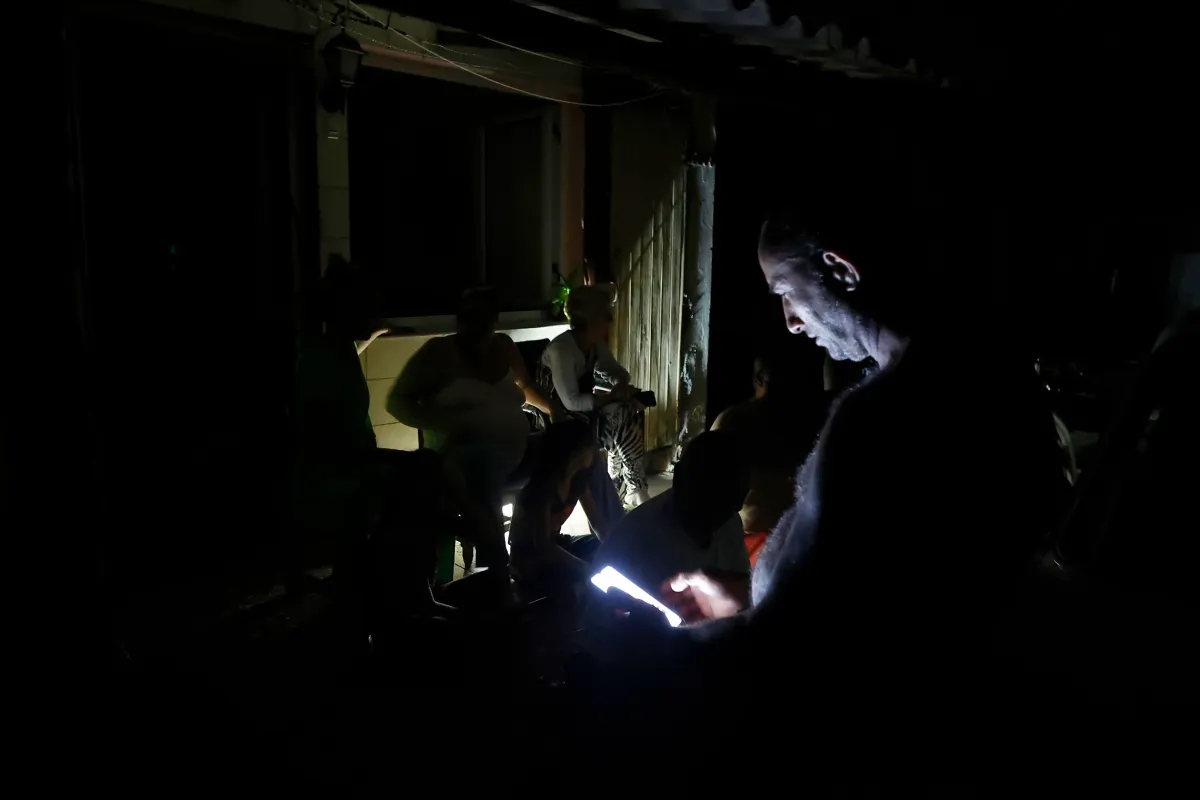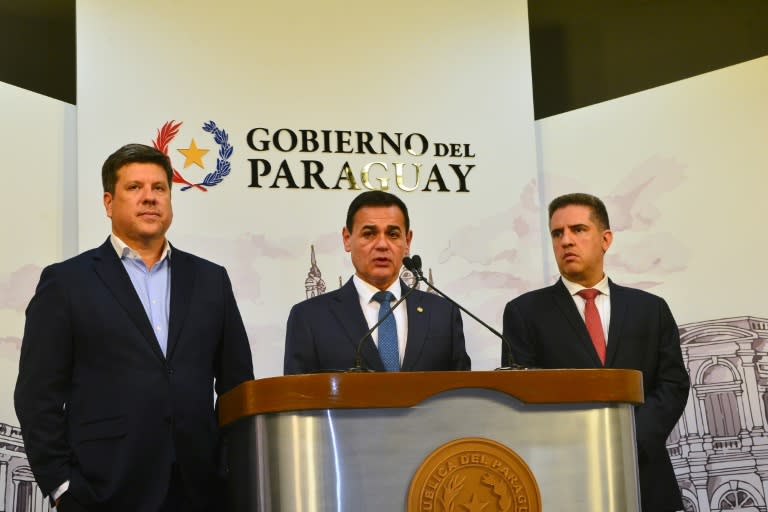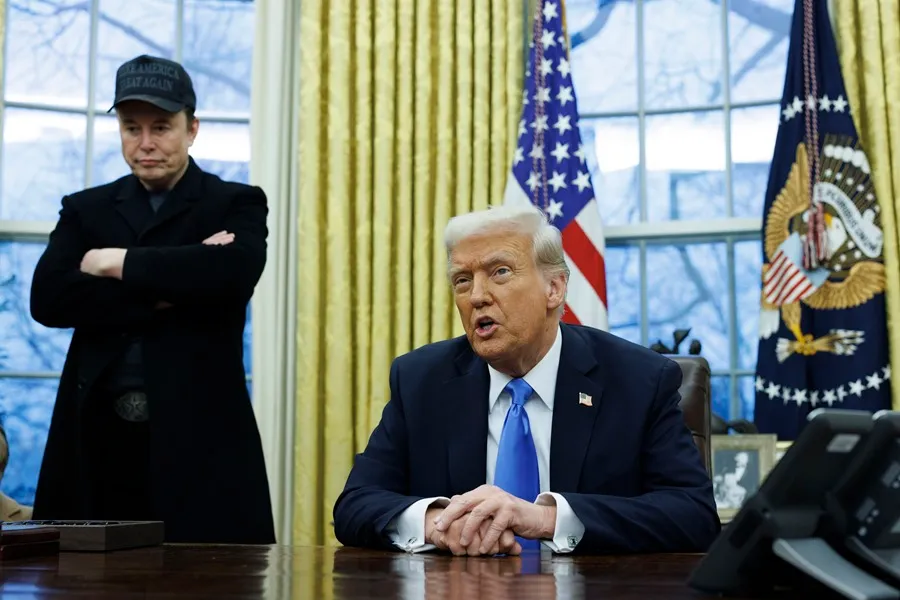International
A third total blackout in Cuba in three days thwarts attempts to recover the service

The third total blackout of Cuba’s National Electric System (SEN) in less than 72 hours has once again frustrated this Sunday attempts to restore a basic service that collapsed three days ago after weeks of exacerbation of an energy crisis that has been brewing for years.
“At this moment, steps are being taken to restore the connection,” Félix Estrada, director of the national cargo office of the company Unión Eléctrica, told state television.
The manager of the state company explained that a strategy is currently being followed to reorganize the country’s electricity generating units by regions and then carry out their start-up.
He said that the objective is to restore the SEN connection in the shortest possible time to gradually restore the service of the approximately ten million inhabitants of the island.
Cause of the third blackout in Cuba
He recalled that the cause of this third blackout occurred due to a “transmission failure” when it had been possible to connect in the same subsystem to Mariel (west) and Holguín (east), separated by more than 600 kilometers.
The first total fall of the system that left the country in “zero national energy coverage” was recorded last Friday, after an “unforeseen” exit from operations of the Guiteras thermoelectric plant, considered key to the stability of the SEN.
This Saturday, the actions carried out to re-energize and recover the SEN failed again, which caused the second total disconnection, and in the last hours of that day the subsystem that had been created in the western half of the island collapsed, so the work had to start again.
The Minister of Energy and Mines, Vicente de la O Levy, acknowledged this Sunday in an appearance that the situation in the electricity system is “very tense.”
Precarious state
But he said that the Government aspires for the SEN to recover within two days the state it had before the first massive blackout and that consequently most consumers will have light again “tomorrow Monday” and that “the last customer may perhaps be receiving (current) next Tuesday.”
The SEN is in a very precarious state due to the shortage of fuel – the result of the lack of foreign exchange to import it – and the frequent breakdowns in obsolete thermoelectric plants, with four decades of operation and chronic lack of investments.
Stocks have been common for years but the situation has worsened in recent weeks. In recent days, days have been recorded with maximum affectation rates of more than 50%, that is, moments when half of the country was simultaneously without electricity.
Affected economy
The frequent blackouts damage the Cuban economy – which in 2023 contracted by 1.9% and boost social discontent in a society affected by an aggravated economic crisis in recent years.
They have also been the trigger for anti-government protests, including those of July 11, 2021 – the largest in decades – those in Nuevitas and Havana in August and September 2022, and those of last March 17 in Santiago de Cuba (east) and other locations.
The last time a similar situation of “zero production” occurred was in September 2022, after the passage of Hurricane Ian with category three through the extreme east of the island. This caused a serious mismatch and the recovery took days.
International
Paraguay summons Brazilian ambassador over Itaipú espionage scandal

Paraguay summoned the Brazilian ambassador in Asunción on Tuesday to demand “explanations” and called its own representative in Brasília for consultations following Brazil’s acknowledgment of an espionage operation. The Brazilian government, led by President Luiz Inácio Lula da Silva, attributed the operation to the previous administration.
The surveillance effort aimed to uncover Paraguay’s position in now-suspended negotiations with Brazil regarding the pricing of electricity from the binational Itaipú hydroelectric plant, according to reports in the Brazilian press.
The Brazilian government “categorically denied any involvement in the intelligence operation,” stating in a Foreign Ministry communiqué on Monday that the espionage was carried out under former President Jair Bolsonaro’s administration (2019-2023).
“The operation was authorized by the previous government in June 2022 and was annulled by the interim director of the (state intelligence agency) ABIN on March 27, 2023, as soon as the current administration became aware of it,” Brazil’s government asserted.
Paraguay’s Foreign Minister Rubén Ramírez announced that Brazilian Ambassador José Antonio Marcondes de Carvalho was summoned “to provide detailed explanations” regarding the operation. Additionally, Paraguay recalled its diplomatic representative in Brasília “to report on aspects related to the intelligence activity conducted by Brazil regarding Paraguay’s government affairs.”
International
Elon Musk to step down as government advisor, per Trump insiders

President Donald Trump has informed his inner circle that Elon Musk will be stepping down from his role as a government advisor, according to a report by Politico today.
Citing three individuals close to Trump, Politico states that the president is pleased with Musk’s leadership at the Department of Government Efficiency (DOGE), where he has implemented significant budget cuts. However, both have agreed that it is time for Musk to return to his businesses and support Trump from a different position outside the government.
A senior administration official told Politico that Musk will likely maintain an informal advisory role and continue to be an occasional visitor to the White House. Another source warned that anyone thinking Musk will completely disappear from Trump’s circle is “deluding themselves.”
According to the sources, this transition is expected to coincide with the end of Musk’s tenure as a “special government employee,” a temporary status that exempts him from certain ethics and conflict-of-interest regulations. This 130-day period is set to expire in late May or early June.
International
Milei vows to make Argentina so strong that Falkland Islanders “choose” to join

Argentine President Javier Milei reaffirmed his country’s claim over the Falkland Islands (known as the Islas Malvinas in Argentina) and praised the role of the nation’s armed forces during a ceremony marking the “Veterans and Fallen Soldiers of the Malvinas War Day,” commemorating 43 years since the 1982 conflict with the United Kingdom.
Argentina continues to assert sovereignty over the islands, arguing that Britain unlawfully seized them in 1833.
“If sovereignty over the Malvinas is the issue, we have always made it clear that the most important vote is the one cast with one’s feet. We hope that one day, the Malvinas residents will choose to vote with their feet and join us,” Milei stated.
“That is why we aim to become a global power—so much so that they would prefer to be Argentine, making deterrence or persuasion unnecessary. This is why we have embarked on a path of liberation, working to make Argentina the freest country in the world and once again the nation with the highest GDP per capita on the planet,” he added.
-

 International5 days ago
International5 days agoSon of journalist José Rubén Zamora condemns father’s return to prison as “illegal”
-

 Central America3 days ago
Central America3 days agoU.S. Homeland Security Secretary urges Mexico to strengthen Guatemala border
-

 Central America4 days ago
Central America4 days agoPanama police clarifies that Interpol alert for Martinelli is still pending
-

 Central America3 days ago
Central America3 days agoPanama grants Martinelli 72-hour extension to travel to Nicaragua
-

 International1 day ago
International1 day agoParaguay summons Brazilian ambassador over Itaipú espionage scandal
-

 International5 days ago
International5 days agoMiyazaki’s style goes viral with AI but at what cost?
-

 International3 days ago
International3 days agoTrump urges Putin to reach peace deal
-

 International4 days ago
International4 days agoDeportation flight lands in Venezuela; government denies criminal gang links
-

 Sports1 day ago
Sports1 day agoFilipe Luis debuts as coach in Copa Libertadores with Flamengo
-

 Central America1 day ago
Central America1 day agoGuatemalan police officer killed in mob riots over baby kidnapping
-

 International1 day ago
International1 day agoElon Musk to step down as government advisor, per Trump insiders
-

 Sports1 day ago
Sports1 day agoVenezuela investigates 18 baseball players seeking asylum in Spain
-

 International1 day ago
International1 day agoMilei vows to make Argentina so strong that Falkland Islanders “choose” to join
-

 International1 day ago
International1 day agoICE agent’s arrest of suspect sparks controversy in Boston
-

 International1 day ago
International1 day agoÓscar Arias: Trump’s trade policies are a step backward















